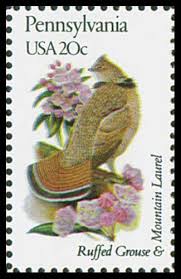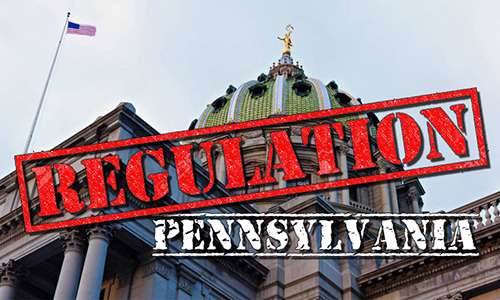Six More Casinos File for Pennsylvania Online Gaming Licenses
To summarize what happened in the Pennsylvania online gaming industry this week, I would like to quote the esteemed newsman Ron Burgundy, who once said, “Boy, that escalated quickly. I mean, that really got out of hand fast.”
Over the weekend, my colleague Haley Hintze reported that in the waning days of the preliminary 90-day application window, only three casinos applied for online gambling licenses in the Keystone State. The legislation authorizing online gaming as well as an overall expansion of gambling in the state was signed by Governor Tom Wolf in late October, making a dozen licenses available. That just three casinos – Parx Casino in Bensalem, Mount Airy Casino Resort in Mt. Pocono, and the not-yet-open Live! Hotel and Casino Philadelphia in South Philly – decided to do the requisite paperwork had to have been disappointing. The legislation took years of legal wrangling and now that it finally passed, barely anybody wanted to participate.
 But at the last moment, six more casinos stepped up, exploding the total number of online gaming operators to nine and making the future of internet gambling in Pennsylvania go from looking bleak to looking hyperactive.
But at the last moment, six more casinos stepped up, exploding the total number of online gaming operators to nine and making the future of internet gambling in Pennsylvania go from looking bleak to looking hyperactive.
In a Tuesday press release, the Pennsylvania Gaming Control Board (PGCB) announced the following casinos had also filed petitions for interactive gaming licenses (we’ll just use the casino names here rather than the casino operator):
Sands Casino Resort Bethlehem in Bethlehem
Hollywood Casino at Penn National Race Course in Grantville
Valley Forge Casino Resort in King of Prussia
Harrah’s Philadelphia Casino & Racetrack in Chester
Rivers Casino in Pittsburgh
Sugarhouse Casino in Philadelphia
All of them submitted their applications on the last possible day, July 16th.
To clarify, it will still be possible for potential operators to request licenses. The July 16th deadline was set for operators to lock in a less expensive price point. There are three different licenses operators can be granted: online poker, online table games (craps, roulette, blackjack, for example), and online slots. Individually, the application fee for each costs $4 million, those who applied for all three by the deadline paid $10 million combined. Still a hefty price, but for those who wanted all three licenses, a 17 percent discount isn’t too bad.
From this point through August 14th, Pennsylvania casinos that want to apply for interactive gaming licenses can still do so (there are three spots remaining of the original twelve), but they will be required to pay full price.
After that, if any licenses are still available, the PGCB will likely accept applications from other qualified operators from outside the set of land-based Pennsylvania casinos in order to fill out the roster. That timeline is yet to be determined, if it will even be necessary at all.
It is actually fairly interesting that so many casinos applied for all three licenses because it was feared that they would see the pricing as prohibitive. In addition to the steep application fees, there are taxes on interactive gaming. Online poker and online table games will be taxed at 14 percent plus another 2 percent local tax. That’s not too bad, generally lining up with what it is in other states.
The taxes for online slot machines is another matter altogether. Operators must fork over 54 percent of their gross gaming revenue from slots plus the 2 percent local tax. If that sounds high, it’s because it is. Those who thought the tax rate was a good idea argue that brick-and-mortar casinos pay 54 percent so their online counterparts should do so, as well.
Well here’s the thing. Land-based casinos have all sorts of other sources of revenue, so even if their margins were terrible thin on slot machines, they can make up for it in other areas. Patrons will visit restaurants, buy things in the shops, spend the night in the hotel, buy drinks at the bar, so on and so forth.
Online casinos don’t have any of that. People pay money to gamble and that’s it. I suppose maybe a site could sell some merchandise, but the profit from that would be near nil. Certainly, they can cross-promote their Pennsylvania casinos, but really, any money that comes from that is spent in the brick-and-mortar property, not online.
It was a legitimate fear that the casinos would not pony up for the licenses because of the application fee and the slots tax rate.
In addition, reports are, as one might have expected, that Pennsylvania working on a liquidity-sharing agreement with New Jersey, Nevada, and Delaware. Pennsylvania has one of the largest populations in the United States and could probably support an online poker industry reasonably well, but the more potential players there are, the better.



















COMMENTS